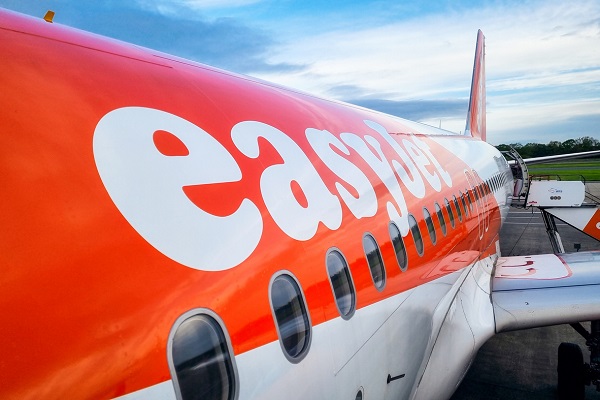ii view: easyJet cuts summer flights as it battles staff shortages
20th June 2022 11:08
by Keith Bowman from interactive investor
Shares for this budget airline are down by close to a quarter during 2022. Buy, sell, or hold?

Summer 2022 Trading update
- Expects third-quarter capacity to be around 87% of 2019 levels, down from a previous 90%
- Expects fourth-quarter capacity to be around 90% of 2019 levels, down from a previous 97%
Chief executive Johan Lundgren said:
“Delivering a safe and reliable operation for our customers in this challenging environment is easyJet’s highest priority and we are sorry that for some customers we have not been able to deliver the service they have come to expect from us.”
ii round-up:
Budget airline easyJet (LSE:EZJ) today reduced summer flight numbers, or capacity, and warned of increased costs as it and the wider industry continued to battle challenges including staff shortages.
The Luton headquartered airline now expects to fly around 87% of 2019 third-quarter levels and 90% of 2019 fourth-quarter capacity levels. That’s down from its earlier year hopes to fly 90% and 97% of its pre-pandemic 2019 levels over the third and fourth quarter levels respectively.
easyJet shares fell by around 2% in UK trading having come into this latest news down around a fifth year-to-date. Shares for rival Wizz Air (LSE:WIZZ) have fallen by more than 50% over that time. The FTSE 250 index is also down by a around a fifth during 2022.
- easyJet triggers one of the biggest warning bells a share can ring
- Five tips to cope in a bear market
- Stockwatch: is this mid-cap share at a turning point?
- 15 cheap shares value fund managers are backing
Challenges, including air traffic control delays and increased ID check times, are now adding to its operational difficulties, and costs are now expected to be higher than management’s previous forecast.
Broker Morgan Stanley estimates that adding to cancellation compensation to passengers, additional costs will be between £100 million and £150 million.
A full third-quarter trading update is scheduled for 26 July.
ii view:
Launched in 1995 and floated on the London stock exchange in 2000, easyJet is a short-haul European airline operating a fleet of Airbus aircraft. Its strategy initiatives include a focus on its network strategy or moving aircraft to airports of higher demand, and growing its easyJet holidays business in partnership with major hotel brands such as InterContinental Hotels (LSE:IHG) and Accor SA (EURONEXT:AC). It is also retaining a strong focus on costs.
For investors, outlook uncertainty and a number of factors outside of the airline’s control remain high. Difficulties like staff shortages are ongoing, while consumers are being pressured by a cost-of-living crisis, potentially reducing cash available to spend on travel. A war in Ukraine has also added to both high fuel prices and an increasingly uncertain geopolitical outlook.
On the upside, a recovery from the pandemic is being seen, with consumer appetite to travel again clearly evident. Management initiatives to raise ancillary or additional revenues like baggage have been a focus, while easyJet has been able to hedge some of the elevated fuel prices. On balance, and with the consensus analyst estimate of fair value standing at over £7 per share, room for longer term optimism looks to persist.
Positives:
- Growing its holidays business
- Strong focus on costs
Negatives:
- Uncertain economic outlook
- Factors outside of management’s control like the weather can hinder performance
The average rating of stock market analysts:
Buy
These articles are provided for information purposes only. Occasionally, an opinion about whether to buy or sell a specific investment may be provided by third parties. The content is not intended to be a personal recommendation to buy or sell any financial instrument or product, or to adopt any investment strategy as it is not provided based on an assessment of your investing knowledge and experience, your financial situation or your investment objectives. The value of your investments, and the income derived from them, may go down as well as up. You may not get back all the money that you invest. The investments referred to in this article may not be suitable for all investors, and if in doubt, an investor should seek advice from a qualified investment adviser.
Full performance can be found on the company or index summary page on the interactive investor website. Simply click on the company's or index name highlighted in the article.